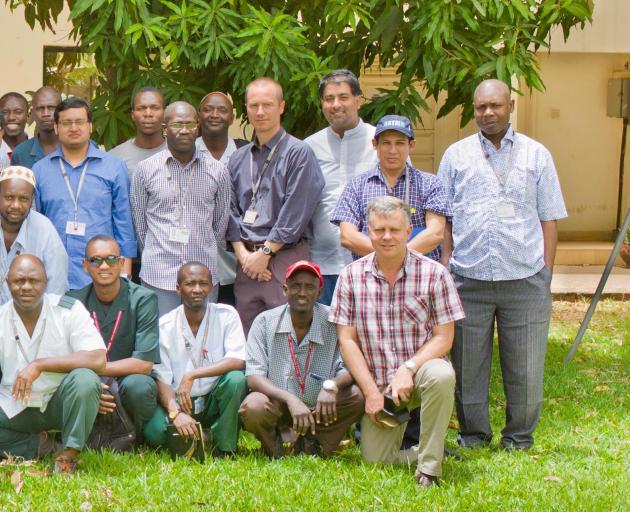
A University of Otago health researcher says working with vaccines can be rewarding.
‘‘The great thing about working in vaccine work is there’s a good chance you will be saving lives,’’ University of Otago McAuley chairman in international health Prof Philip Hill said.
Prof Hill has worked as part of a team researching the impact of pneumococcal vaccines on children in The Gambia.
The Pneumococcal Surveillance Project, which was led by Dr Grant McKenzie, was conducted over eight years in Basse, in the rural east of the country.
A study of the vaccine’s impact, published this month in medical journal The Lancet Infectious Diseases was the first comprehensive evaluation of the impact of pneumococcal conjugate vaccines on pneumonia.
It showed use of the vaccine within The Gambian Extended Programme on immunisation reduced X-ray-proven pneumonia in children by 24% and very severe pneumonia by 61%.
The incidence rate of pneumonia in African children is up to 10 times that of New Zealand children, Prof Hill said, mostly due to vulnerability arising from poverty and malnutrition.
Prof Hill said studies such as that run in The Gambia were ‘‘crucial’’ because they demonstrated the impact of vaccines in helping to reduce the incidence of pneumonia. Other low-income countries could then see vaccines worked.
Prof Hill said The Gambia was recognised as having one of the best vaccine delivery systems in the world, due to the establishment of the British Medical Research Council unit there. It was established there in 1947.
The project:
★ The Pneumococcal Surveillance Project is funded by the Global Alliance for Vaccines and Immunisation’s Pneumococcal Vaccines Accelerated Development and Introduction Programme; the Bill & Melinda Gates Foundation; and the Medical Research Council, UK.
★ In collaboration with the University of Otago; the Ministry of Health and Social Welfare, The Gambia; Medical Research Council (UK); London School of Hygiene & Tropical Medicine; International Vaccine Access Centre at Johns Hopkins University; Murdoch Children’s Research Institute, Melbourne; and the Programme for Appropriate Technology in Health, Seattle.












